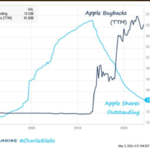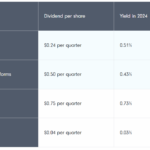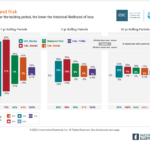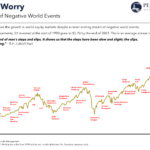Investing in emerging equities is more risky than investing in equities of the developed world for a variety of reasons. As the name itself implies, emerging markets are markets that are still in the development stage. Hence unlike the developed countries, they may lack many of the characteristics required for a stable and well functioning equity market. For example, liquidity can be an issue in some emerging markets while in others onerous government regulations on ownership may be am issue. So from an investment standpoint, emerging markets have unique risks that global investors should be aware of and make investment decisions accordingly.
The following is a discussion of five mistakes that investors can avoid when investing in emerging market stocks:
1.Trying to pick and invest in the next big thing
Some investors scour the world of emerging market equities to identify the next big thing that can turn into a multi-bagger. Such examples include trying to pick the Netflix(NFLX) of India or the Amazon(AMZN) of China. Investors hope that by getting into the ground floor of copycats of such high-fliers they can reap huge gains. Until a few months ago Eros International Plc (EROS) was widely touted as the Netflix of India since the country has a huge population and internet usage is exploding. While this story sounds good, reality is much more complex. From over $36 in July this year the stock has plunged and is trading at just over $9 now. Similarly former IPO hot stock Alibaba Group Holding Limited (BABA) of China was nearly cut in half from a peak of $111 to $57. It has recovered recently to trade at around $84.
2.Not paying attention to the macroeconomic picture
When investing in any market it is important to pay attention to the economy. With emerging markets keeping an eye on the domestic and regional economies is even more important as they equities and the economies tend to be volatile.
A few years ago some investors got attracted to a few airline stocks in Latin America as the story line here was that booming economies will lead to increased air travel and more people would prefer the comfort of air travel over traveling by bus. However as the regional economies went into recessions due to the decline in commodity markets, the airline stocks crashed. For instance, Panama-based Copa Holdings SA (CPA) plunged from over $121 to as low as $39 in a short period. This is because though Panama itself was doing ok, the countries where Copa flew into and out of were suffering from recessions. As a result the airline was adversely impacted. Colombia-based Avianca Holdings S.A. (AVH) is another example.
3. Investing based on a widely popular theme or acronym-based investing
Investing in developing countries based on some newly created theme or acronym will lead to disaster. Many years ago Goldman Sachs created the BRIC. Though Brazil, Russia, India and China had nothing in common other than they were developing countries this false grouping with a catchy name caught the media’s attention and governments to international institutions were mesmerized by it. Scores of funds were launched based on the BRIC concept. With all the hype about the BRICs investors also went for the ride. While the party lasted for a while it ended swiftly when brick by brick one BRIC economy after another fell. Other acronyms that have been hyped include MINTS, BRICS (with South Africa included), The Next Eleven (or N-11) which includes great investment destinations such as Pakistan, Iran, etc. So the key point to remember is to not get carried away by all the flashy and cool acronyms that gets floated around.
Disclosure: No Positions



